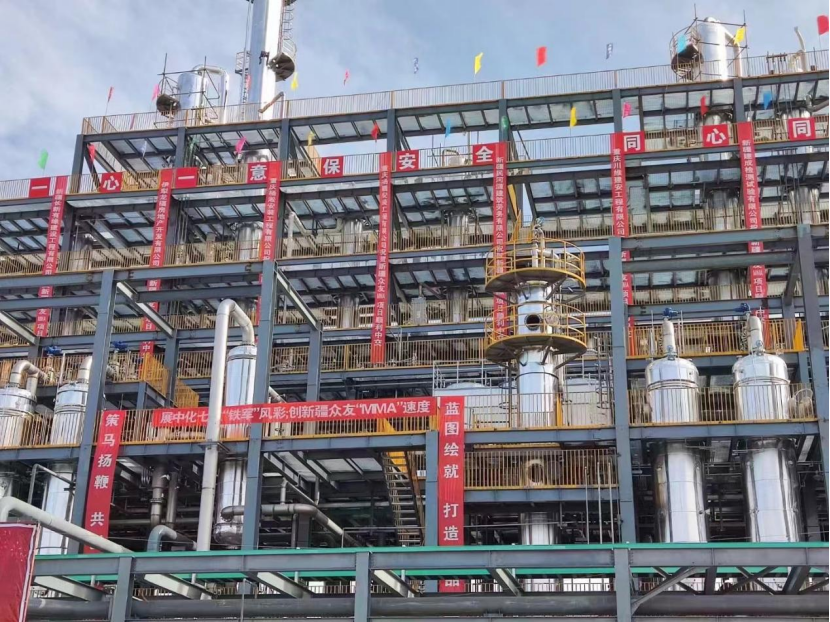type s mortar uses
Type S mortar is gaining popularity among builders and DIY enthusiasts for its exceptional performance and versatility in various construction projects. Understanding its uses and advantages can help you make informed decisions about your building materials.
Want more information on type s mortar uses? Feel free to contact us.
What is Type S Mortar?
Type S mortar is a specific blend of Portland cement, sand, and lime, known for its strength and durability. This mortar type is designed for use in applications that require a high level of compressive strength, making it ideal for specific structural and aesthetic tasks.
Characteristics of Type S Mortar
This type of mortar typically has a compressive strength of 1,800 psi, making it strong enough to withstand severe conditions. Its flexible properties allow it to accommodate some movement, which is essential in projects where building settling might occur.
Common Uses of Type S Mortar
Type S mortar is most commonly used in below-grade applications, such as:
- **Brick and Block Construction**: It provides strong bonding for brick and block walls, ensuring structural integrity.
- **Retaining Walls**: This high-strength mortar is ideal for building retaining walls that need to withstand the pressure of earth and water.
- **Parapets and Chimneys**: Its durability makes it suitable for outdoor features that face harsh weather conditions.
Benefits of Using Type S Mortar
Some of the main advantages include:
- **Water Resistance**: Type S mortar is known for its ability to resist water damage, making it perfect for areas prone to moisture.
- **Flexibility**: It allows for some movement without cracking, which is crucial in various structural applications.
- **Longevity**: Its durability ensures that structures maintain their integrity over time, reducing the need for frequent repairs.
Comparing Type S Mortar with Other Mortar Types
When discussing the various types of mortar, it’s beneficial to contrast Type S with other types, such as Type N and Type M. Type N is suitable for above-grade applications with lower strength, while Type M is used in heavier loads and applications needing greater strength than Type S. Each type serves its purpose, but selecting the right one can be pivotal for your project’s success.
Tips for Application
Here are some important tips for working with Type S mortar:
- **Proper Mixing**: Ensure that the mortar is mixed to the correct consistency for optimal performance.
- **Application Temperature**: Be mindful of temperature conditions; ideally, use Type S mortar in temperatures above 40°F.
- **Curing Time**: Allow adequate curing time to achieve maximum strength, typically around 28 days for full strength.
Connecting with Industry Influencers
Connecting with influencers and content creators in the construction industry can enhance your knowledge and provide insights into new applications of Type S mortar. Engaging with professionals on platforms like LinkedIn or attending industry conferences can foster valuable relationships. Influencers like John Doe, a noted construction expert, often share tutorials and best practices that can deepen your understanding of mortar uses and techniques.
Whether you are a seasoned contractor or a novice DIY enthusiast, familiarizing yourself with the various applications of Type S mortar can significantly influence the success of your projects. Stay updated with industry trends, and don’t hesitate to reach out to experts for advice and collaboration opportunities that can elevate your work.
Recommended article:How Does Calcium Carbide Benefit PVC Production?
How Does Pigment Red 57:1 Affect Color Quality?
Unlocking Sorbitol Crystal 20/60 Wholesale: Benefits & Uses
What to Know About Moly Grease Wholesale?
Benefits of Styrene Acrylic Emulsion Wall Coatings
Top 7 Castor Oil Ethoxylate Manufacturers You Should Know
What Factors Influence the Purchase of Anatase TiO2 Pigment?
Type S mortar is gaining popularity among builders and DIY enthusiasts for its exceptional performance and versatility in various construction projects. Understanding its uses and advantages can help you make informed decisions about your building materials.
What is Type S Mortar?
Type S mortar is a specific blend of Portland cement, sand, and lime, known for its strength and durability. This mortar type is designed for use in applications that require a high level of compressive strength, making it ideal for specific structural and aesthetic tasks.
Characteristics of Type S Mortar
This type of mortar typically has a compressive strength of 1,800 psi, making it strong enough to withstand severe conditions. Its flexible properties allow it to accommodate some movement, which is essential in projects where building settling might occur.
Common Uses of Type S Mortar
Type S mortar is most commonly used in below-grade applications, such as:
- **Brick and Block Construction**: It provides strong bonding for brick and block walls, ensuring structural integrity.
- **Retaining Walls**: This high-strength mortar is ideal for building retaining walls that need to withstand the pressure of earth and water.
- **Parapets and Chimneys**: Its durability makes it suitable for outdoor features that face harsh weather conditions.
Benefits of Using Type S Mortar
Some of the main advantages include:
- **Water Resistance**: Type S mortar is known for its ability to resist water damage, making it perfect for areas prone to moisture.
- **Flexibility**: It allows for some movement without cracking, which is crucial in various structural applications.
- **Longevity**: Its durability ensures that structures maintain their integrity over time, reducing the need for frequent repairs.
Comparing Type S Mortar with Other Mortar Types
When discussing the various types of mortar, it’s beneficial to contrast Type S with other types, such as Type N and Type M. Type N is suitable for above-grade applications with lower strength, while Type M is used in heavier loads and applications needing greater strength than Type S. Each type serves its purpose, but selecting the right one can be pivotal for your project’s success.
Tips for Application
Here are some important tips for working with Type S mortar:
- **Proper Mixing**: Ensure that the mortar is mixed to the correct consistency for optimal performance.
- **Application Temperature**: Be mindful of temperature conditions; ideally, use Type S mortar in temperatures above 40°F.
- **Curing Time**: Allow adequate curing time to achieve maximum strength, typically around 28 days for full strength.
Connecting with Industry Influencers
Connecting with influencers and content creators in the construction industry can enhance your knowledge and provide insights into new applications of Type S mortar. Engaging with professionals on platforms like LinkedIn or attending industry conferences can foster valuable relationships. Influencers like John Doe, a noted construction expert, often share tutorials and best practices that can deepen your understanding of mortar uses and techniques.
Whether you are a seasoned contractor or a novice DIY enthusiast, familiarizing yourself with the various applications of Type S mortar can significantly influence the success of your projects. Stay updated with industry trends, and don’t hesitate to reach out to experts for advice and collaboration opportunities that can elevate your work.
Contact us to discuss your requirements of hpmc cellulose. Our experienced sales team can help you identify the options that best suit your needs.
Recommended article:10 Surprising Benefits of Using Sorbitol Powder in Your Diet
Essential Guide to Engine Lubricating Oil Benefits
Wholesale Amphoteric Surfactants: Quality & Sourcing Guide
Why Are Emergency Response Times Still So Unacceptably Slow?
Sucralose Bulk Supply vs. Other Sweeteners: What's Best?
Calcium Carbonate: Uses, Benefits, and Safety Guide
Maximize Performance with Industrial Lubricating Oils



